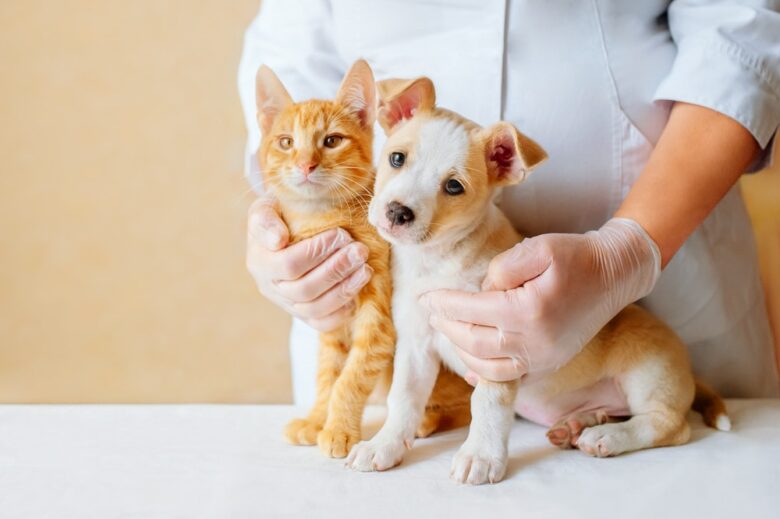Purchasing pet insurance is becoming increasingly popular among people who love their pets and want to protect them against unexpected medical costs. However, like many other types of insurance, there are many myths and false beliefs about pet insurance that can leave people confused and hesitant. When it comes to pet insurance, it’s important to understand the difference between fact and myth. Let’s take a look at some popular pet insurance myths and see what’s really going on.
Pet Insurance is a Waste of Money:
People often think that pet insurance is a waste of money, but that is not the case. Many cat owners think that their pets don’t need insurance because they are healthy. But the truth is, your pet’s health isn’t always predictable. Just like people, pets can suddenly become ill or injured, and treating them can be very expensive. Getting pet insurance is a great way to ensure that you can provide your pet with the best care when they need it most. Even if your pet is not currently sick, not having to worry about your pet’s health can be very helpful.
It Only Covers Accidents:
Another common misconception is that pet insurance only covers accidents, such as if your pet is hurt or injured. Accident coverage is an important part of pet insurance, but many policies also cover illness, surgery and even care to keep your pet healthy. Depending on the plan you choose, pet insurance can help pay bills related to allergies, cancer or diabetes. Some policies even include health plans that can cover things like regular checkups, injections, and dental care. You should read the fine print of each policy carefully to understand what it covers and choose one that suits your pet’s needs.
Senior Pets Are Not Covered by Pet Insurance:
A common misconception is that pet insurance only applies to young animals and not to older pets. It’s true that senior pet insurance can be more expensive, but many insurance companies have plans specifically for senior pets. These plans can help address health problems that come with age, such as arthritis or heart disease. Some insurance companies also allow you to cover pets of any age, but previous conditions may not be covered. It is important to find a service that is suitable for pets of all shapes and sizes.
You Can’t Choose Your Vet:
Some pet owners think that pet insurance is limited to certain veterinarians, just like some human health insurance policies. You can even take your pet to any qualified veterinarian or specialist, as most pet insurance policies allow this. This way, you can choose the best care method for your pet. This means that because you have pet insurance, you don’t have to worry about changing your favourite vet. Check with your insurance company to be sure, but most insurance companies allow this leeway.
They Don’t Pay for Pet Insurance:
Many people are unsure if pet insurance will actually cover costs when they need it. Pet owners may not want to get insurance because they think they are paying a lot of money for nothing. Pet insurance works just like other types of insurance. The insurance company will cover the costs as long as the claim falls under the policy’s provisions. To avoid surprises, make sure you fully understand the terms of your policy, such as any exclusions or waiting periods. Ask your insurance company for clarification if you are unsure of the details before signing a policy.
Every Pet Insurance Policy is the Same:
Some pet owners think it doesn’t matter which pet insurance policy they choose because they are all pretty much the same. It’s not safe to think like that. Pet insurance policies can vary widely in what they cover, what they don’t cover, what they pay out, and their costs. Some plans cover many different conditions, while others may not pay for certain types of care or have limitations on how much they pay. It is important to compare policies carefully and choose the policy that best suits your pet’s needs. You should not assume that all policies will cover you the same way.
Pre-Existing Conditions Are Always Excluded:
Most pet insurance policies won’t cover conditions that existed before the policy went into effect, but that doesn’t mean your pet can’t get coverage. Some insurance companies will cover pets with treatable pre-existing conditions after the pet has been symptom-free for a while. For example, if your cat has had an ear infection in the past but has not developed any other problems since then, some policies may still cover future illnesses unrelated to the first problem. It is important to discuss your pet’s medical history with your insurance company and make sure you understand what is and is not covered.
If Your Pet Is Healthy, You Don’t Need Pet Insurance:
If your pet is currently healthy, you don’t need insurance. This is one of the most dangerous beliefs. Surprises and changes in your pet’s health can happen at any time. If you wait until your pet gets sick or injured, you may have to pay more for your insurance, or certain things may not be covered. Get pet insurance if your pet is young and healthy. The rates are usually cheaper and the coverage is more complete. The best way to protect your pet’s long-term health is to get pet insurance before something happens.
Conclusion:
Pet insurance is a great way to ensure your furry friends get the best care when they need it. Breaking these common misconceptions can help you make smarter choices and tip your hat to unnecessary medical bills. Remember, pet insurance is meant to prepare you for the unexpected and give you peace of mind that your pet’s health is protected. You shouldn’t let false beliefs keep you from getting coverage that could save your pet’s life.
FAQs:
1. Should you take out cat insurance if your pet is healthy?
Yes, even if your pet is healthy now, pet insurance can protect you if it gets sick or injured in the future.
2. Can I still get insurance for my pet even if he has a pre-existing medical condition?
Most policies do not cover pre-existing conditions, but some may cover conditions that can be cured without symptoms for a period of time.
3. Does pet insurance cover regular checkups and recordings?
Some insurance plans offer fitness programmes with regular checkups, injections and care to keep you healthy.
4. How does the pet insurance refund process work?
Once you’ve paid your vet bills, you can file a claim with your insurance company. Depending on the rules of your policy, they will reimburse you for certain costs.
5. If I have pet insurance, can I choose my own vet?
Yes, most pet insurance policies allow you to choose a qualified veterinarian or specialist to care for your pet.




